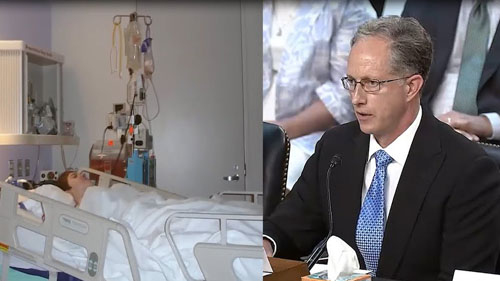| Recent Featured Videos and Articles | Eastern “Orthodoxy” Refuted | How To Avoid Sin | The Antichrist Identified! | What Fake Christians Get Wrong About Ephesians | Why So Many Can't Believe | “Magicians” Prove A Spiritual World Exists | Amazing Evidence For God | News Links |
| Vatican II “Catholic” Church Exposed | Steps To Convert | Outside The Church There Is No Salvation | E-Exchanges | The Holy Rosary | Padre Pio | Traditional Catholic Issues And Groups | Help Save Souls: Donate |  |









 " />
" /> " />
" /> " />
" /> " />
" /> " />
" />




Other Popes And Saints Against Invincible Ignorance
Defenders of salvation for the “invincibly ignorant” might be disquieted to hear that two other popes, Pope Benedict XIV and Pope St. Pius X, explicitly reiterated the Church’s dogma that there are certain mysteries of faith about which no one who wishes to be saved can be ignorant. These mysteries are the mysteries of the Trinity and the Incarnation, as it was defined by the Athanasian Creed.
Every person above the age of reason must have a positive knowledge of these mysteries of Faith to be saved. There are no exceptions. And this truth of the Catholic Faith is why scores of popes and saints have taught that every single member of that mass of humanity who lives in ignorance of Christ is under the Devil’s dominion and will not be saved, unless he is incorporated into Christ’s marvelous light by faith and baptism.
In his Bull Sublimus Dei, Pope Paul III addresses the question of the Indians in the “recently discovered” New World. Speaking in the context of those above the age of reason, Pope Paul III declares that they are capable of receiving the Faith, and he reiterates the teaching of tradition that not one of them can be saved without faith in Jesus Christ.
This shows us, once again, that it is contrary to the Catholic Faith to assert that souls ignorant of the essential mysteries of the Catholic Faith can be saved.
That great “Apostle of the Rocky Mountains,” Fr. Pierre De Smet, who was the extraordinary missionary to the American Indians in the 19th century, was also convinced – with all the great Catholic missionaries before him – that all the Indians whom he did not reach would be eternally lost. (See also the section later on St. Isaac Jogues and St. Francis Xavier)
This truth on salvation is why St. Louis De Montfort says the following in his masterpiece True Devotion to Mary (which we strongly recommend for everyone):
This truth on salvation is why Pope Gregory the Great responded in the following manner after seeing some youths from unevangelized Britain in a slave market:
Pope Gregory the Great clearly held that the Angles were not in a position to be saved, even though they were ignorant of the Gospel. They were, as he said, enslaved to the prince of darkness since they were outside the supernatural kingdom of Christ (the Catholic Church) and under the dominion of the Devil by reason of original sin. Hence, he resolved to send St. Augustine of Canterbury to evangelize them and save them.
This truth on salvation is why St. Francis De Sales stated the following in The Catholic Controversy:
This truth on salvation is why Pope Leo XIII says that Christopher Columbus’s discovery of America led to the salvation of hundreds of thousands of mortals who would otherwise have been lost for dying in a state of ignorance of the true faith.
This truth on salvation is why Pope Pelagius I, representing the mind and Tradition of the entire early Catholic Church, declared that those who “did not know the way of the Lord” were lost.
[1] The Papal Encyclicals, Vol. 1 (1740-1878), p. 46.
[2] The Papal Encyclicals, Vol. 3 (1903-1939), p. 30.
[3] The Papal Encyclicals, Vol. 1 (1740-1878), p. 260.
[4] http://www.papalencyclicals.net
[5] Fr. E. Laveille, S.J., The Life of Fr. De Smet, p. 80.
[6] Fr. E. Laveille, S.J., The Life of Fr. De Smet, pp. 139-140.
[7] Fr. E. Laveille, S.J., The Life of Fr. De Smet, pp. 139-140.
[8] St. Louis De Montfort, True Devotion to Mary, Bay Shore, NY: The Montfort Fathers, 1946, # 61.
[9] Warren H. Carroll, A History of Christendom, Christendom Press, Vol. 2 (The Building of Christendom), p. 197.
[10] St. Francis De Sales, The Catholic Controversy, p. 59.
[11] St. Francis De Sales, The Catholic Controversy, p. 74.
[12] St. Francis De Sales, The Catholic Controversy, p. 200.
[13] The Papal Encyclicals, Vol. 2 (1878-1903), p. 285.
[14] Denzinger 228a.
Sign up for our free e-mail list to see future vaticancatholic.com videos and articles.
Recent Content
^